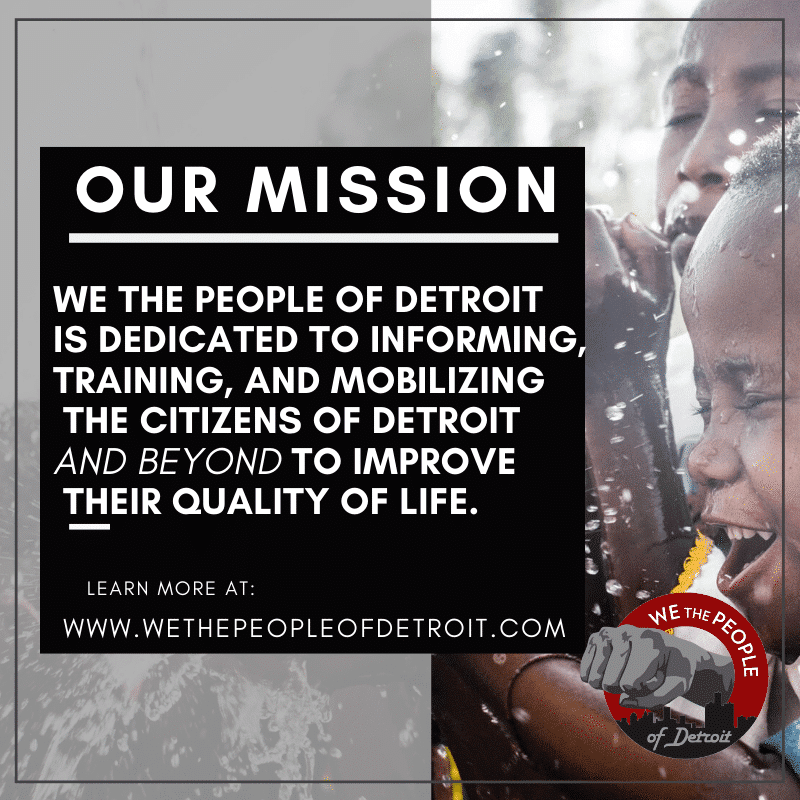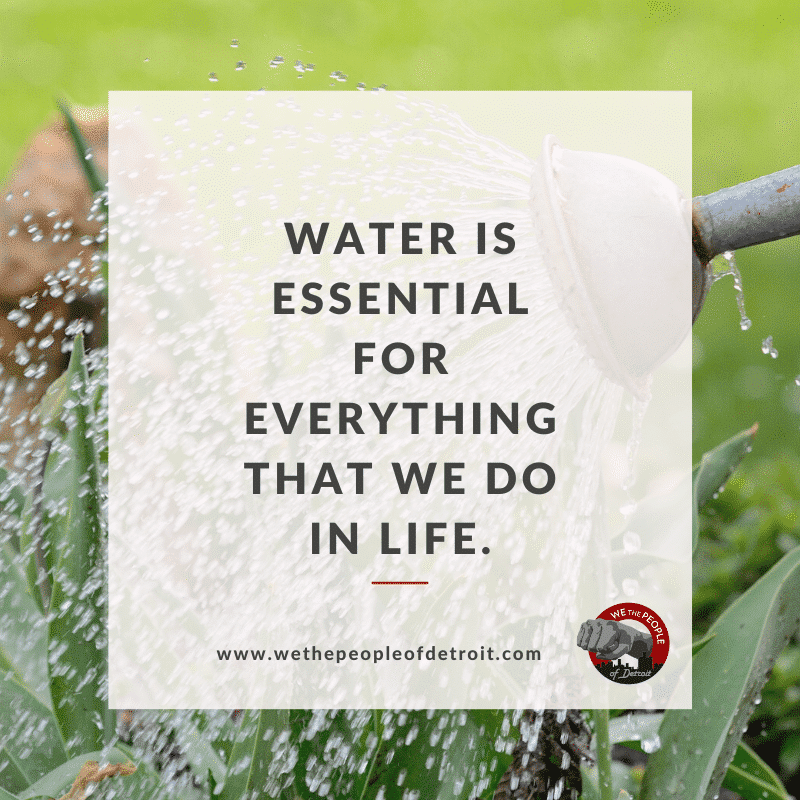United States (Detroit)
A group of activists led by a ‘Water Warrior’ are on a mission to improve the lives of Detroiters by empowering the underdog to fight for water and an equitable future.
Growing up in Tennessee, Monica Lewis-Patrick had always wanted to live in Detroit in Michigan. Her grandparents had moved to the city in the fifties and she had spent a lot of time visiting the area in her youth. Her deep affection for the city is even tied directly to one of Baseball’s greatest players; for Detroit Tiger legend Willie Horton is her uncle.
When the educator and entrepreneur eventually did move to Detroit in 2009, the city’s great resilience sparked an urge to help improve the lives of the people there – and that’s how Monica became known as the ‘Water Warrior’.
“I advocate for what I consider the underdog or the person that’s mistreated. There is nothing that we can’t accomplish together.” – Monica Lewis-Patrick

Meet the Water Warrior | Photo: Marcus Lyon
It was when Monica was registering her children for school that she realised that there was something seriously wrong with the system: “They wanted to give the mayor total say so over governance of the school and that to me just seemed to sort of fly in the face of democracy.”
Within a couple of weeks of being in the city, she found herself organising parents and grandparents to show up to city council meetings, and “unapologetically” brought together a group of fellow Black female activists in response to the Mayoral Emergency Management over the city’s public schools.
This evolved into We The People of Detroit after the women learned that the City of Detroit had cut off the water of an apartment building occupied by mothers and senior citizens.
Today the community-based grassroots organisation gives low-income families access to clean water; provides education on water issues; conducts research to raise awareness; and mobilises people to take action. More than an aid organisation, it is a community of people with a deep connection to and love for one another. Monica is adamant that, “to be kind it means you really have to seek opportunities to help people.”
The human rights activist wanted to present people with a critical counter narrative, educating and empowering Detroit residents on “imperative issues surrounding civil rights, land, water, education and the democratic process”.
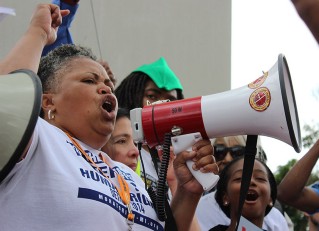
Today Monica is known as ‘The Water Warrior’ and fights for the rights of Detroiters to have access to water, even if they cannot afford to pay their bills. She manages a water rights hotline so people can get emergency assistance, and oversees water stations that will even deliver water directly to households in need of water relief.
There is a growing water crisis in Detroit. In a city where nearly 40 per cent of its people live in poverty, water has become increasingly unaffordable for many of its residents. In 2013 the City of Detroit filed for bankruptcy, initiating a massive water shutoff campaign against Detroit residents who had unpaid water bills.
“There are many austerity issues that are playing out in the city,” Monica explains. “So we began to organise, then began to say that we weren’t going to wait on anyone to save us, that we were going to do everything in our power through self-determination and cooperative work to create systems that would ensure that people had some kind of water relief in this city. And that has been our mission. Everything that we’ve done since then has been focused around the human right to water for all people.”
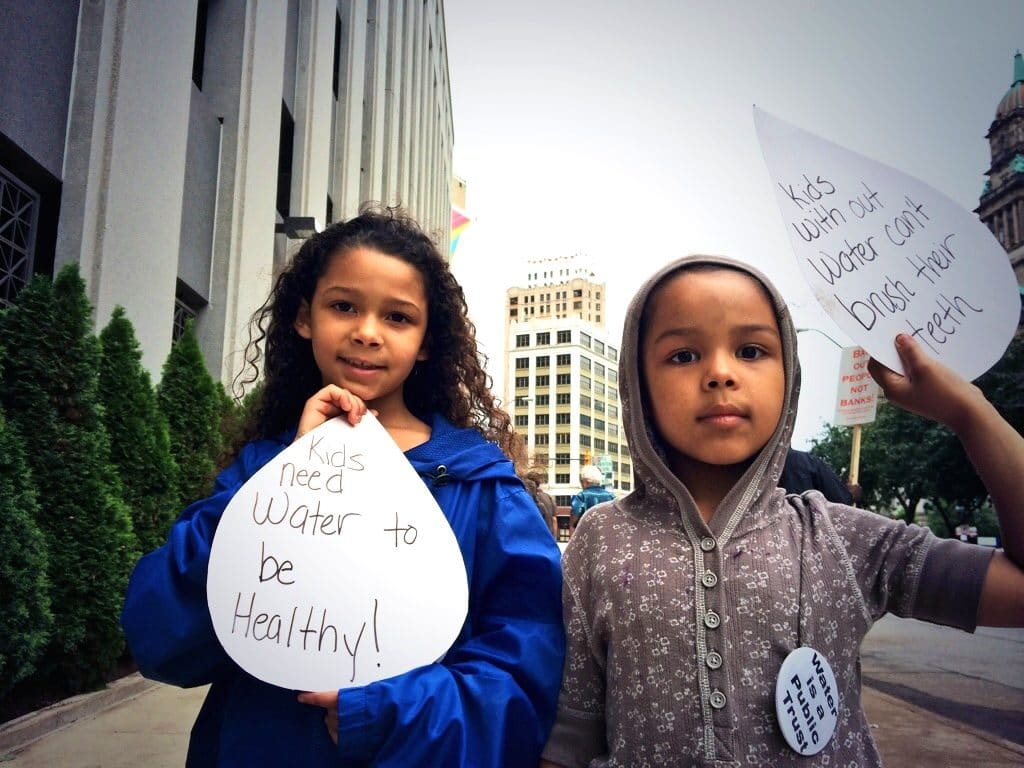
WPD also collaborates with community activists, academics, researchers and designers with their Community Research Collective (CRC), which uses data to visually show the socio-economic consequences of austerity policies in Detroit, while working toward the dismantling of “Black and Brown” Detroit neighbourhoods.
They published the book, Mapping the Water Crisis: The Dismantling of African American Neighborhoods in Detroit as the first instalment in a three-part series of books documenting the effects of austerity and its relationship to race in Detroit – and are currently working on research into ‘education’ and will then move onto ‘land’.

As WPD continues in its mission to serve Detroit citizens, it actively involves Detroit youth through leadership and internship opportunities to continue the sustainability of beloved community-building – always focusing on what is equitable and just.
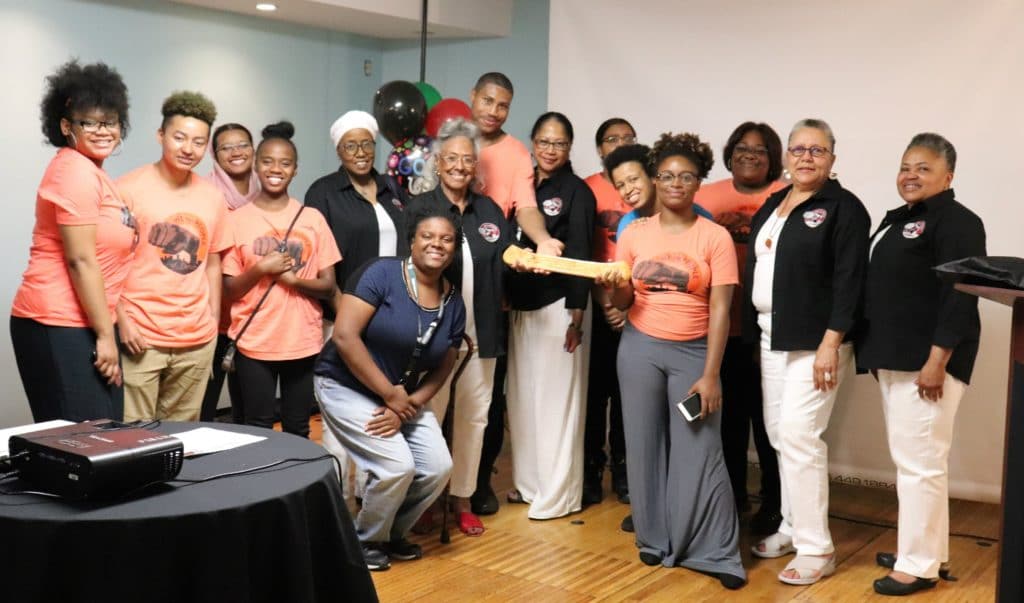
#WeTheYouthOfDetroit
While WPD works extensively in Detroit, the organisation extends its reach by partnering with organisations in Toledo, Flint and Chicago (the cities that are using the Water Affordability Plan from Detroit). In addition, WPD is working on a national policy on water affordability to ensure that the crisis in Detroit cannot happen again elsewhere.
AtlasAction: Want to support their work? Any donation helps.
Read more ► We The People of Detroit was mapped by artist Marcus Lyon in his Human Atlas: 5 stories from Detroit
Project leader
Monica Lewis-Patrick, Chris Griffith, Aurora Harris, Monica Cecily McClellan & Debra Taylor
Partners
This project has been selected as part of CultureFutures, a new storytelling project that maps creative and cultural projects with a social mission – and the artists, collectives and entrepreneurs behind them.
Atlas of the Future is excited to join forces with Goldsmiths Institute of Creative and Cultural Entrepreneurship and the British Council Creative Economy.
Support the Atlas
We want the Atlas of the Future media platform and our event to be available to everybody, everywhere for free – always. Fancy helping us spread stories of hope and optimism to create a better tomorrow? For those able, we'd be grateful for any donation.
- Please support the Atlas here
- Thank you!
